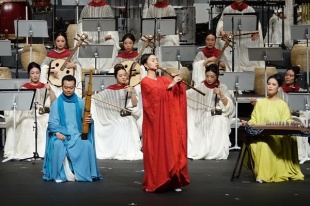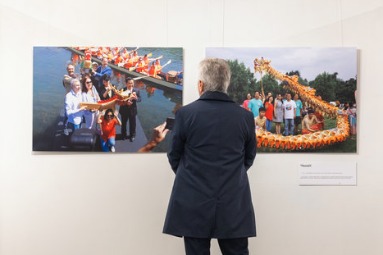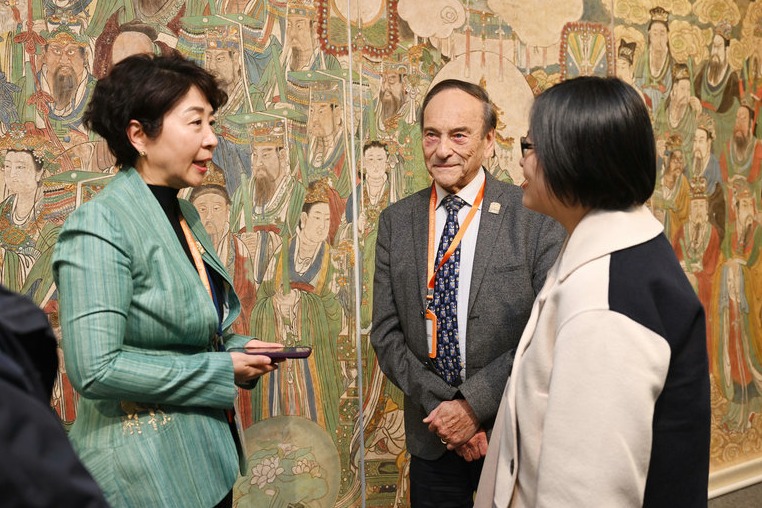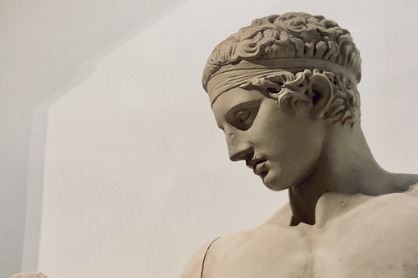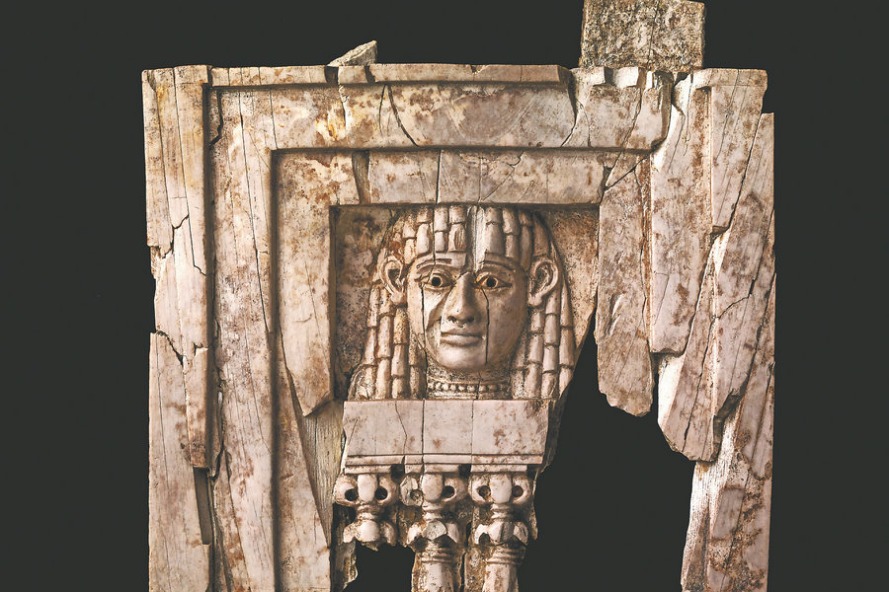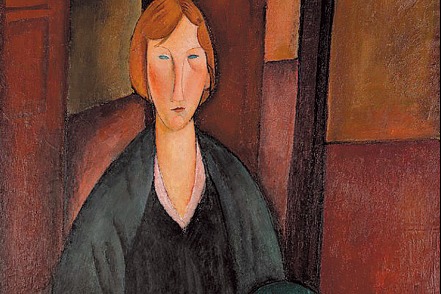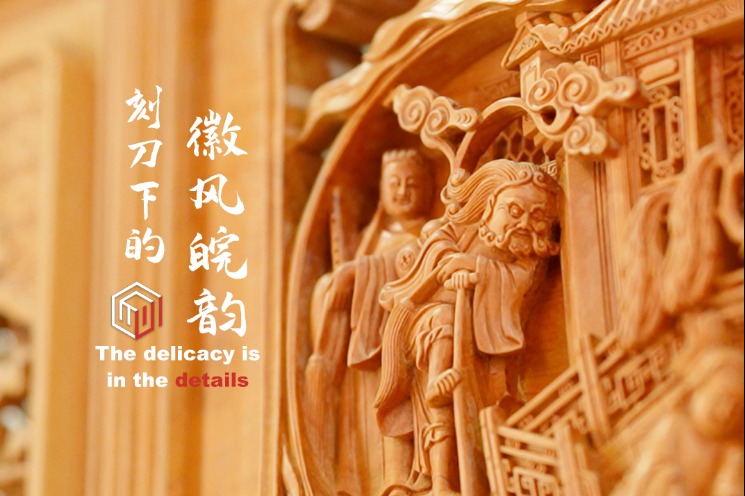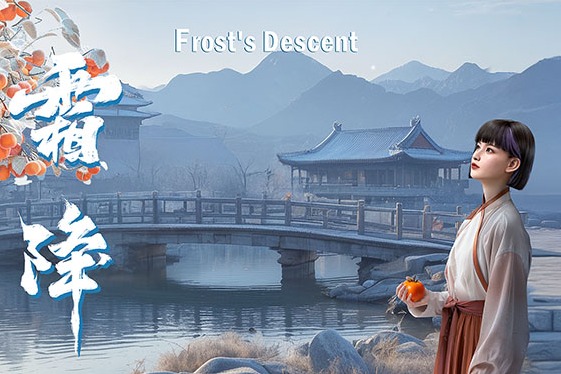Traditional music modernizes to beat of the future

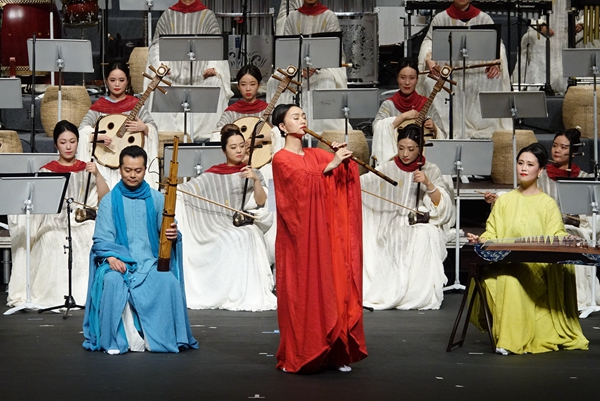
The Shanghai Chinese Orchestra kicked off its new music season on May 15 with the premiere of its Magnificent China concert. The opening concert at the Shanghai Grand Theater marked the first time more than 10 ethnic instruments were played in one music piece.
In a review for Shanghai news outlet The Paper, reporter Liao Yang wrote that the concert hall lit up and "turned into a rock music show "when all the instruments were played together in the third chapter.
Wang Yunfei, the composer of Magnificent China, says the team has rich experience in creating new composition pieces using ethnic music instruments.
"But this is the first time so many of them appeared in one piece," Wang says.
Instruments included plucked string instruments from Yunnan province, the horsehead fiddle of the Inner Mongolia autonomous region and the dombra lute of the Xinjiang Uygur autonomous region.
"Each has its unique beauty and features distinctive texture and sound quality," Wang told the media before the premiere.
"My mission was to string them up with a narrative thread, and create a journey, or a story, about unity and solidarity among different ethnic groups in China."
Luo Xiaoci, director of the orchestra, says the concert consists of five chapters, following the main thread of Chinese civilization through 5,000 years.
"We have introduced the new composition of Magnificent China this year in celebration of the centennial of the founding of the Communist Party of China, hoping to present the beauty and glory of Chinese culture from a new perspective," Luo says.
The premiere was performed under the baton of Tang Muhai, a renowned musician who used to serve as the chief conductor of the Finnish National Opera, the Belgrade Philharmonic Orchestra and the Zurich Chamber Orchestra.
Having spent decades conducting Western classical music, Tang says now is the time for Western musicians to play an active part in the development of Chinese music.
"For centuries, we learned from the West and looked up to their culture," says the 71-year-old maestro.
"Chinese instruments and folk music have been making breakthroughs and achievements, presenting the essence of our culture. I think it's time Western musicians are invited to join in the creation and performance of Chinese music as our music is not inferior, but in parallel with the West."
Founded in 1952, the Shanghai Chinese Orchestra is the first large-scale orchestra in the country featuring Chinese folk music instrumentation. Tang says Chinese music instruments were brought together to form the orchestra in the 1950s and '60s, learning from the structure of classical Western orchestras.
"Chinese folk music is going through a period of revolutionary development, and I don't want to fall behind," Tang says.
"I hope more musicians can join in and ride the wave, so that we can do the research, create and nurture new talent together."
Tang will join renowned musicians Zhang Guoyong and Tan Dun as a conductor for the SHCO in a series of concerts for its new music season.
The SHCO has held annual music seasons since 2005. Through the years, Luo says they keep improving the programs and have introduced many themed concerts and new compositions which have become part of the orchestra's repertoire.
A major highlight for the 2021-22 season is the premiere of a new Chinese instrument edition of Tan's Buddha Passion, a composition inspired by the ancient mural art in the Mogao Caves of Dunhuang in Gansu province.
The concert will be performed by the SHCO at the Shanghai Grand Theater on New Year's Eve. This will be the third year that the theater is hosting a Chinese folk music themed New Year Concert.
Maestro Tan will be conducting the concert himself.
He composed Buddha Passion after he repeatedly visited the murals in Dunhuang and worked on the piece for six years.
To adapt the piece for Chinese instruments, Tan did more studies on the music scenes in the murals. He also made revisions to the piece according to the unique sound quality of folk instruments, as well as the performance styles of individual artists from the SHCO.


